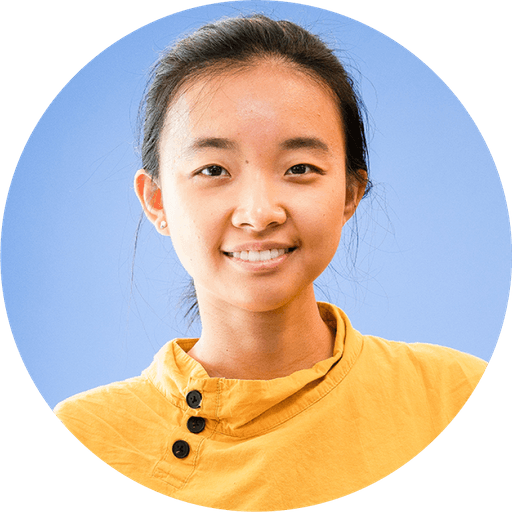Flavors of HCI
Flavors of HCI
Flavors of HCI
We have invited Ph.D. students with secret recipes of HCI and curated a “tasting menu” for you. Check out our five themes and speakers below! RSVP to reserve your spot!
We have invited Ph.D. students with secret recipes of HCI and curated a “tasting menu” for you. Check out our five themes and speakers below! RSVP to reserve your spot!
We have invited Ph.D. students with secret recipes of HCI and curated a “tasting menu” for you. Check out our five themes and speakers below! RSVP to reserve your spot!

RSVP Here!


Schedule
Schedule
Saturday
Saturday
Event Opening & Onboarding
Event Opening & Onboarding
Tepper 2701
11:30 - 12:30
Tepper 2701
11:30 - 12:30
Lunch & Connect
Lunch & Connect
Tepper 2610
12:30 - 1:30
Tepper 2610
12:30 - 1:30
Technical Studies & Accessibility in HCI
Technical Studies & Accessibility in HCI
Tepper 2610
2:00 - 3:30
Tepper 2610
2:00 - 3:30
Human-AI Interaction
Human-AI Interaction
Tepper 2701
4:30 - 6:00
Tepper 2701
4:30 - 6:00
Sunday
Sunday
Social Studies in HCI
Social Studies in HCI
Tepper 2612
3:00 - 4:30
Tepper 2612
3:00 - 4:30
Critical / Cultural Approaches in HCI
Critical / Cultural Approaches in HCI
Tepper 2612
5:00 - 6:30
Tepper 2612
5:00 - 6:30

Technical Studies + Accessibility in HCI
Tepper 2610, 2:00 - 3:30

Yi Fei Cheng
Yi Fei is a technical HCI researcher who builds technology and computational approaches to advance our capabilities when interacting with the digital world. His research focuses on making Mixed Reality adaptive to its usage context. He is a PhD student in the Augmented Perception Lab (APL) directed by Professor David Lindlbauer.

Daehwa Kim
Daehwa is a first-year PhD student in the Future Interfaces Group at Carnegie Mellon University, supervised by Professor Chris Harrison. Her research interests lie in sensing technologies, sensor fabrication, and machine learning across various domains, particularly wearable computing, mobile computing, and extended reality environments. She presented papers at ACM CHI and UIST and has been recognized with two Best Paper Nominations at CHI. Daehwa earned her Masters in Computer Science from KAIST, advised by Professor Geehyuk Lee at KAIST HCIL.

Joon Jang
Joon conducts research at the intersection of accessibility (A11y), disability studies, computer vision applications, and IxD for computer and robotic systems. He is currently a member of AXLE Lab. Outside of research, he is passionate about issues of equitable access for persons with disabilities, particularly with education.
Human AI-Interaction
Tepper 2701, 4:30 - 6:00


Anna Kawakami
Anna is a second year PhD student at Carnegie Mellon’s Human-Computer Interaction Institute, where she is advised by Professor Ken Holstein and Professor Haiyi Zhu. She explores whether and how we could design for human-AI complementarity: partnerships between humans and AI systems that build upon each others’ strengths and compensate for each others’ limitations. To poke at this problem space, she uses mixed and participatory methods to study the use, design, and impacts of algorithmic decision support tools in high-stakes, complex domains such as social work. She also has experience doing industry research on responsible AI through prior internships at Microsoft Research.

Tzu-Sheng Kuo
Tzu-Sheng is a second-year PhD student in the Human-Computer Interaction Institute at Carnegie Mellon University, co-advised by Professor Ken Holstein and Professor Haiyi Zhu. He develops interactive systems and design methods that support community-driven approaches to designing, improving, and evaluating AI in socio-technical spaces. His research addresses critical problems in real-world contexts by working closely with community members, including local residents in Pittsburgh and online groups on Wikipedia. Before his PhD, he worked on interaction design and VR at Stanford University and National Taiwan University.
Social Studies in HCI
Tepper 2612, 3:00 - 4:30

Pranav Khadpe
Pranav combines system-building, empirical methods, and theoretical approaches to study, design and build participation opportunities in economic and cultural production efforts. By doing so, he seeks to understand how we might architect production efforts that become arenas for collective creativity, self-development, and co-creation and sharing of value.

Jane Hsieh
Jane is a third year Software Engineering doctoral student at the Institute of Software Research and an NSF Graduate Research Fellow in HCII. Her research interests lie within sociotechnical research, focusing particularly on worker-centered optimization using empirical and design methods.
Critical / Cultural Approaches in HCI
Tepper 2612, 5:00 - 6:30

Jordan Taylor
Jordan's research interests lie at the intersection of social computing, culture, and marginalized communities (particularly LGBTQ+ and fat communities). He is broadly interested in the social construction of knowledge by (e.g., in online communities) and about (e.g., in academia or data schemas) marginalized groups.

Wesley Deng
Wesley's current research interests are Human-Centered Machine Learning, Algorithmic Accountability & Transparency, and, more broadly, Human-AI Interaction. Currently, he is building frameworks and systems to facilitate communication and collaboration among diverse stakeholders in the design, development, and oversight of public-facing emerging technologies.

Cella M. Sum
Cella is a PhD student at Carnegie Mellon University’s Human-Computer Interaction Institute. Her research focuses on technology, labor, disability, and care infrastructures. Drawing from postcolonial, feminist, and critical disability perspectives, she examines the politics of care in relation to technology and design. Using community-based participatory design methods, she works with affected communities to co-create more just alternatives.

Adinawa Adjagbodjou
Adinawa is a PhD student at Carnegie Mellon University's Human-Computer Interaction Institute. Her research focuses on understanding the role of language technologies with English language learners and investigating the role of VR technologies in improving communication, equity, creativity, co-creation, and relationship building.

Technical Studies + Accessibility in HCI
Tepper 2610, 2:00 - 3:30

Yi Fei Cheng
Yi Fei is a technical HCI researcher who builds technology and computational approaches to advance our capabilities when interacting with the digital world. His research focuses on making Mixed Reality adaptive to its usage context. He is a PhD student in the Augmented Perception Lab (APL) directed by Professor David Lindlbauer.

Daehwa Kim
Daehwa is a first-year PhD student in the Future Interfaces Group at Carnegie Mellon University, supervised by Professor Chris Harrison. Her research interests lie in sensing technologies, sensor fabrication, and machine learning across various domains, particularly wearable computing, mobile computing, and extended reality environments. She presented papers at ACM CHI and UIST and has been recognized with two Best Paper Nominations at CHI. Daehwa earned her Masters in Computer Science from KAIST, advised by Professor Geehyuk Lee at KAIST HCIL.

Joon Jang
Joon conducts research at the intersection of accessibility (A11y), disability studies, computer vision applications, and IxD for computer and robotic systems. He is currently a member of AXLE Lab. Outside of research, he is passionate about issues of equitable access for persons with disabilities, particularly with education.
Human AI-Interaction
Tepper 2701, 4:30 - 6:00

Anna Kawakami
Anna is a second year PhD student at Carnegie Mellon’s Human-Computer Interaction Institute, where she is advised by Professor Ken Holstein and Professor Haiyi Zhu. She explores whether and how we could design for human-AI complementarity: partnerships between humans and AI systems that build upon each others’ strengths and compensate for each others’ limitations. To poke at this problem space, she uses mixed and participatory methods to study the use, design, and impacts of algorithmic decision support tools in high-stakes, complex domains such as social work. She also has experience doing industry research on responsible AI through prior internships at Microsoft Research.

Tzu-Sheng Kuo
Tzu-Sheng is a second-year PhD student in the Human-Computer Interaction Institute at Carnegie Mellon University, co-advised by Professor Ken Holstein and Professor Haiyi Zhu. He develops interactive systems and design methods that support community-driven approaches to designing, improving, and evaluating AI in socio-technical spaces. His research addresses critical problems in real-world contexts by working closely with community members, including local residents in Pittsburgh and online groups on Wikipedia. Before his PhD, he worked on interaction design and VR at Stanford University and National Taiwan University.
Social Studies in HCI
Tepper 2612, 3:00 - 4:30

Pranav Khadpe
Pranav combines system-building, empirical methods, and theoretical approaches to study, design and build participation opportunities in economic and cultural production efforts. By doing so, he seeks to understand how we might architect production efforts that become arenas for collective creativity, self-development, and co-creation and sharing of value.

Jane Hsieh
Jane is a third year Software Engineering doctoral student at the Institute of Software Research and an NSF Graduate Research Fellow in HCII. Her research interests lie within sociotechnical research, focusing particularly on worker-centered optimization using empirical and design methods.
Critical / Cultural Approaches in HCI
Tepper 2612, 5:00 - 6:30

Jordan Taylor
Jordan's research interests lie at the intersection of social computing, culture, and marginalized communities (particularly LGBTQ+ and fat communities). He is broadly interested in the social construction of knowledge by (e.g., in online communities) and about (e.g., in academia or data schemas) marginalized groups.

Wesley Deng
Wesley's current research interests are Human-Centered Machine Learning, Algorithmic Accountability & Transparency, and, more broadly, Human-AI Interaction. Currently, he is building frameworks and systems to facilitate communication and collaboration among diverse stakeholders in the design, development, and oversight of public-facing emerging technologies.

Cella M. Sum
Cella is a PhD student at Carnegie Mellon University’s Human-Computer Interaction Institute. Her research focuses on technology, labor, disability, and care infrastructures. Drawing from postcolonial, feminist, and critical disability perspectives, she examines the politics of care in relation to technology and design. Using community-based participatory design methods, she works with affected communities to co-create more just alternatives.

Adinawa Adjagbodjou
Adinawa is a PhD student at Carnegie Mellon University's Human-Computer Interaction Institute. Her research focuses on understanding the role of language technologies with English language learners and investigating the role of VR technologies in improving communication, equity, creativity, co-creation, and relationship building.